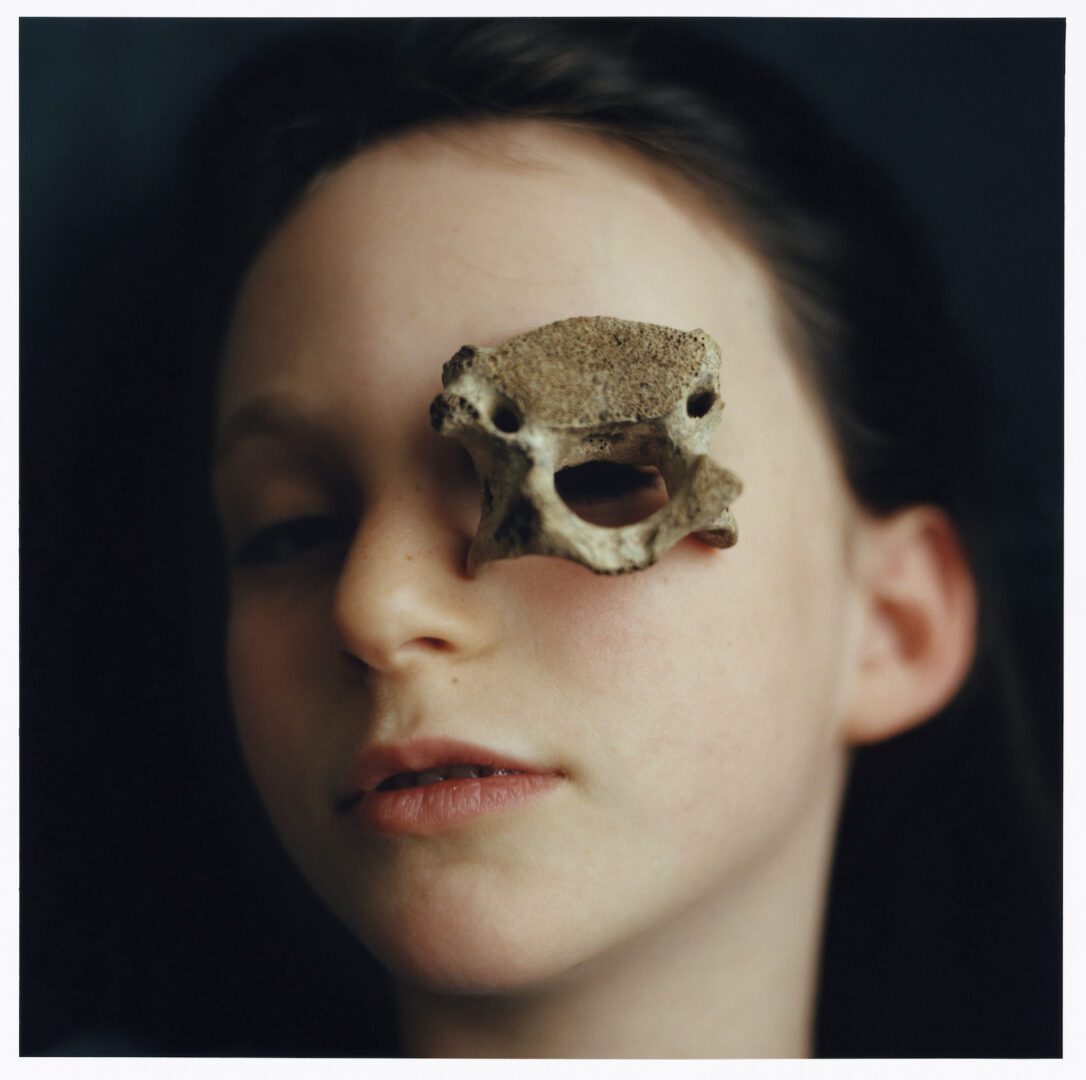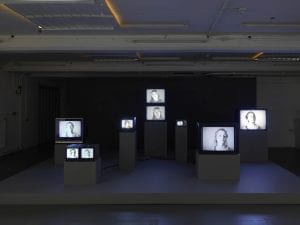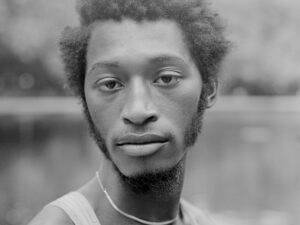A girl looks back at us through plastic. Snacks in hand and a book by her side, the subject sits inside a cube-shaped tent planted in the garden. Her hazy appearance through the translucent barrier prompts us to wonder: what is she thinking about? How is she feeling? This picture of serene backyard camping – titled Eden – was captured by the child’s mother Lydia Goldblatt (b. 1978) and won the Taylor Wessing Portrait Prize in 2020. It is from Fugue, which is a deeply personal series for Goldblatt. She started developing the project in 2020 over the following four years. During this time, she went through both the experience of becoming a mother and losing her own. Now, Goldblatt presents these photographs and writing together in photo book form – a tangible keepsake of such an intense period of “change and transition.”

Care has been given to every aspect of the book. You feel this from the photographs themselves to the way each has been thoughtfully laid out next to others. For instance, the first spread reveals chicken-poxed skin opposite a print of bathroom tiles covered in a cherry blossom motif. The layout draws our attention to the visual similarities between such different subject matters, such as the colours of the flowers’ red pistils and the child’s spots. Such a selection of hues brings to mind the puce fabric cover that encases the entire volume and the burgundy end papers held within. Goldblatt explains the thinking behind these choices in an insightful interview with Anneka French for 1000 Words. She states: “I wanted it to be bodily.”

Later in the volume, there’s a moment that prompts us to ask: what do we choose not to photograph? The author describes a moment where she consoled her daughter after a sleepless night and then glimpsed them together in the window reflection. However, we don’t get to see this scene. Instead, we are shown a hand waving as the person attached walks away up the stairs. Fully aware of the camera’s power to freeze time forever, here Goldblatt instead embraces the fact that everything is fleeting. Next to this, the photographer recounts the story of comforting her child and muses: “I don’t want to exchange child for tripod, the embrace giving me as much as it does her: An unmade image to add to the archive.”

“If you do not like me shouting… Listen when I talk.” These words come from Mother Tongue, a smaller series-within-a-series at the centre of Fugue. As a whole, the photo book explores the broad spectrum of human and experiences emotions, from playful mischief to painful grief. However, here, Goldblatt expresses an unexpected emotion: rage. The artist states: “I wanted to be honest about what I was struggling with, about the feelings of claustrophobia and rage, as much as intimacy and love. These are feelings so often hidden by mothers, so often silenced as unacceptable.” Here, images are interspersed with passages of text as well as linked lines that run on from separate pages. Sandwiched between the the imperative “Look at me…so that I know you are listening” is Eden, changing the way we view this scene.

We step into the Goldblatt’s daily routine as we flip through the pages of Fugue. There are glimpses of the photographer as artist, mother, daughter, griever, protector and more. It also feels as if she is confiding in us, inviting us to witness everything from her honest emotions and mundane experiences to those core memories. Every moment is important and so is every feeling, no matter how “unacceptable” they might seem in society’s eyes. Fugue places the multi-faceted reality of four intense years between our hands.
Lydia Goldblatt: Fugue | GOST
Words: Diana Bestwish Tetteh
Image Credits:
- From Fugue © Lydia Goldblatt





